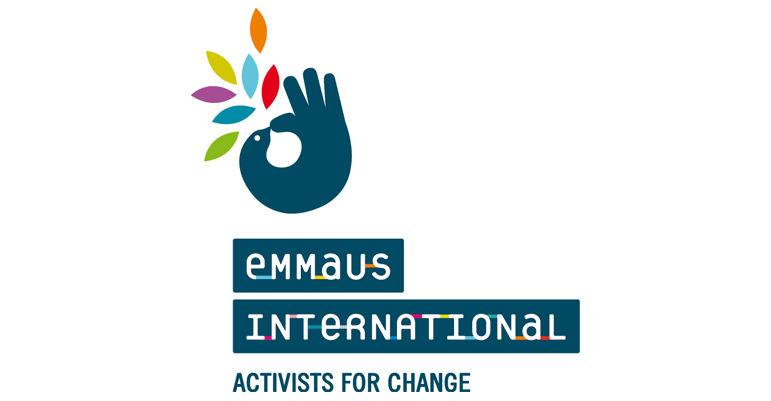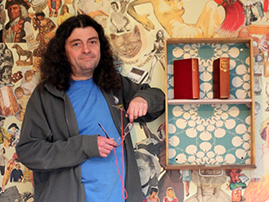Emmaus UK & International

Emmaus UK is part of an international movement.
Established in 1971, Emmaus International is now made up of more than 300 groups, in 36 countries, across four regions: Africa, Asia, Europe and the Americas.
Every Emmaus group is different, tailored to the needs of the country it works in, and are all unified by their commitment to “serve first those who suffer most”, as set out in the Emmaus Universal Manifesto.
Emmaus International has five priority areas:
- Migrants’ rights
- Access to water
- Ethical finance
- Access to healthcare
- Access to education
Staff, companions and trustees from the UK regularly visit projects in other parts of the world and raise money at home for groups in poorer countries through acts of solidarity.
What does Emmaus do in other parts of the world?
Emmaus Europe has member groups in 16 countries. Most European projects, like those in the UK, welcome socially excluded people and generate income to support themselves through the collection and sale of goods that would otherwise be thrown away.
Emmaus Africa traditionally focuses on supporting young people and women in rural areas. Activities include farming, market gardening and livestock rearing as well as selling second-hand goods. Groups also work to eliminate illiteracy, promote human rights and combat child trafficking. Microcredit is regularly used to enable low-income communities to find the financial resources required to create their own work and therefore an income.
Emmaus America primarily works in South America, and the groups there earn a living mainly through the collection and sale of second-hand goods. Other activities include shipbuilding, making handicrafts and woodwork. Social projects are mainly aimed at children, young people, and the most disadvantaged families.
Emmaus Asia has a wide range of different groups, which vary considerably from country to country.
In India, the emphasis is on offering training and on defending the rights of women, children and people traditionally regarded as "untouchable" (Dalits). The groups there also support organic farming.
In Bangladesh, Emmaus has created jobs for women with no income and a school for their children, thanks to the manufacture and sale of fairtrade textile products.
In Indonesia, projects support children and the sick, through a drop-in centre, a clinic and training.
In Lebanon, the Emmaus group has set up an alternative bank which grants loans for micro-projects.
For all of us, whatever our background, it symbolises a shared conviction that love alone can unite us and enable us to move forward together.
The Emmaus Movement was born in November 1949, when people with a sense of their own privileged position and personal responsibility in the face of injustice encountered others who no longer had any reason for living.
They decided to join forces to help both each other and others in need, in the belief that only in saving others can one save oneself.
To achieve this they set up communities whose members work both to earn a living and to give to others. They are supported by groups of friends and volunteers committed to public and private action.
Universal Manifesto
Our Guiding Principle is one which is essential to the whole human race if there is to be any life worth living, and any true peace and happiness, either for the individual or society: serve those worse off than yourself before yourself. Serve the most needy first.
Our Conviction is that respect for this principle must be the driving force behind any search for justice, and therefore peace, in the world.
Our Aim is to act so that each individual, every society, every nation may live, flourish and achieve fulfilment in a spirit of giving, sharing and mutual respect.
Our Method is to create, support and promote communities in which all feel free and respected, and where they can meet their own needs and help each other.
Our Primary Means wherever possible is through recycling. This form of work prevents waste as well as increasing the possibilities for providing emergency relief to those in need.
Every Other Means of arousing consciences and of presenting the challenge of Emmaus must be used to help and persuade others to help those who are most in need, by sharing their hardship and their struggles, both public and private, until the causes of all their ills are removed.
Our Freedom. In carrying out this task Emmaus recognises no ideal other than that expressed in this Manifesto and no other authority other than its own constitution. It acts in accordance with the Universal Declaration of Human Rights adopted by the United Nations and with the just laws of every society and every nation. It makes no distinction on political, racial, linguistic, religious or any other grounds. Acceptance of this Manifesto is the only requirement of anyone wishing to share in our work.
This Manifesto constitutes the basis of the Emmaus Movement. It must be adopted and applied by every group wishing to become an active member.








